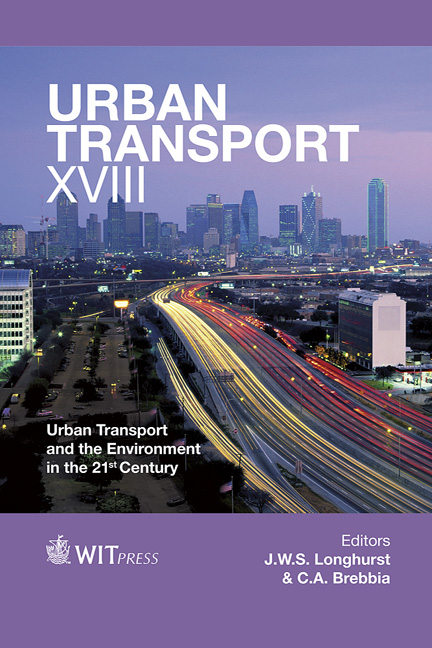Estimating The Effects Of Access Time Windows In The Management Of Urban Delivery Fleets
Price
Free (open access)
Transaction
Volume
128
Pages
12
Page Range
335 - 346
Published
2012
Size
618 kb
Paper DOI
10.2495/UT120291
Copyright
WIT Press
Author(s)
R. Grosso, J. Muñuzuri, M. Rodríguez Palero & P. Aparicio
Abstract
The analyses prior to the introduction of access time window policies in the centre of European cities often neglect the evaluation of the extra costs imposed on carriers through the additional number of vehicles required and the increase in tour length. To facilitate this evaluation, we have developed a vehicle routing algorithm that takes into account the existence of access time windows and adapts tours in the best possible manner to this restriction. The algorithm is based on a Genetic Algorithm, which we use to make this evaluation through the analysis of several experiments in a test network. Keywords: vehicle routing, access time windows, city logistics, Genetic Algorithms. 1 Introduction Vehicle routing problems constitute one of the most widespread topics in scientific literature. Academic papers, occasionally resulting in commercial software applications, provide a long list of problem setups and solution techniques, from linear optimization to the most advanced and modern metaheuristic approaches. However, the list of vehicle routing problem types continues to increase, mainly due to the ever-increasing complexity of fleet management scenarios. In fact, the main concern of this paper lies with the definition of one of these complex transportation scenarios, often found in urban freight deliveries, rather than with the methodological search of the best possible solution method. The problem formulated here stems, like all the other routing problems, from the observation of reality, and more specifically from the difficulties encountered by freight delivery companies operating in urban areas. Sustainability policies
Keywords
vehicle routing, access time windows, city logistics, Genetic Algorithms.





